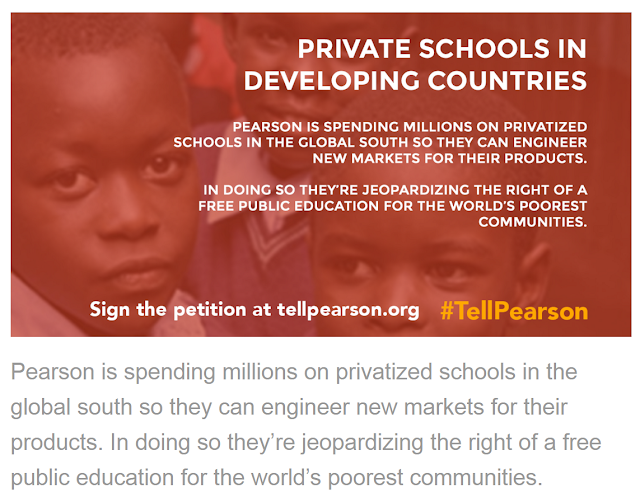An Appeal to Pearson Shareholders

A public education system in decline, a government that is more than willing to lift restrictions just to entice privatization of education, and a globalized economy that now can easily dictate what wages should be and not ought to be can easily combine to form a destructive corporatization of basic education. Learning outcomes in basic education are closely tied to the quality of life of children both inside and outside schools. This is a fact strongly supported by research. No corporation therefore can claim any ability to turn around failing schools in poor communities or developing countries without improving first the lives of the children in these depressed neighborhoods. Randi Weingarten, president of the American Federation of Teachers is attending a shareholders' meeting in London. The company is Pearson. In an email circulated by an action network, Weingarten describes Pearson in the following manner: Pearson’s brand is becoming toxic because it promotes bad policy th...






